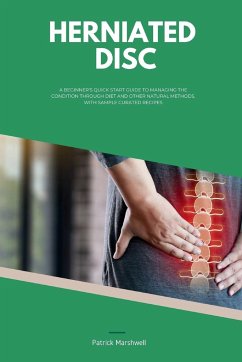Discs protect the bones (vertebrae) that make up the spine in the back. These discs are round, like small pillows, and have a tough outer layer (annulus) that surrounds the nucleus. Discs are made of cartilage and are between each of the vertebrae in the spine. They function as shock absorbers for the vertebrae. A herniated disc also called a bulged, slipped, or ruptured disc happens when a piece of the disc nucleus is pushed through a tear or break in the annulus and into the spinal canal. When a disc bulges, it is usually in the early stages of wearing out. The spinal canal is small, which does not have enough room for the spinal nerve and the herniated disc fragment that has moved. Because of this, the disc pushes on the spinal nerves, which can cause pain that can be very bad. Most herniated discs happen in the lower back, and they are induced by wear and tear that comes with age. But any disc in your spine can pop out of place. Some individuals are born with spinal canals that are narrower than normal or with other problems that make them more likely to have a herniated disc. Most herniated discs happen when someone lifts something heavy or goes through a traumatic event like a car crash. A herniated disc is also common because of the wear and tear that comes with getting older. Most of the time, a herniated disc is treated conservatively with over-the-counter pain relievers, anti-inflammatory drugs, ice packs, and heat therapy. Physical therapy may also be suggested to help stretch and strengthen the muscles that support your spine. If conservative treatments don't help alleviate your pain or if your herniated disc is making your arms or legs weak, numb, or tingle, you may need surgery to remove the damaged part of the disc and relieve the pressure on your nerves. In this quick start guide, we'll discuss the following in detail: What are the symptoms of herniated discs? What causes herniated discs? How is it diagnosed? What are the complications of herniated discs? What are the medical treatments for herniated discs? How can you prevent herniated discs? Managing herniated discs through natural methods Managing herniated discs through diet Keep reading to learn everything you need to know about managing herniated discs through diet and other natural methods!
Hinweis: Dieser Artikel kann nur an eine deutsche Lieferadresse ausgeliefert werden.
Hinweis: Dieser Artikel kann nur an eine deutsche Lieferadresse ausgeliefert werden.









